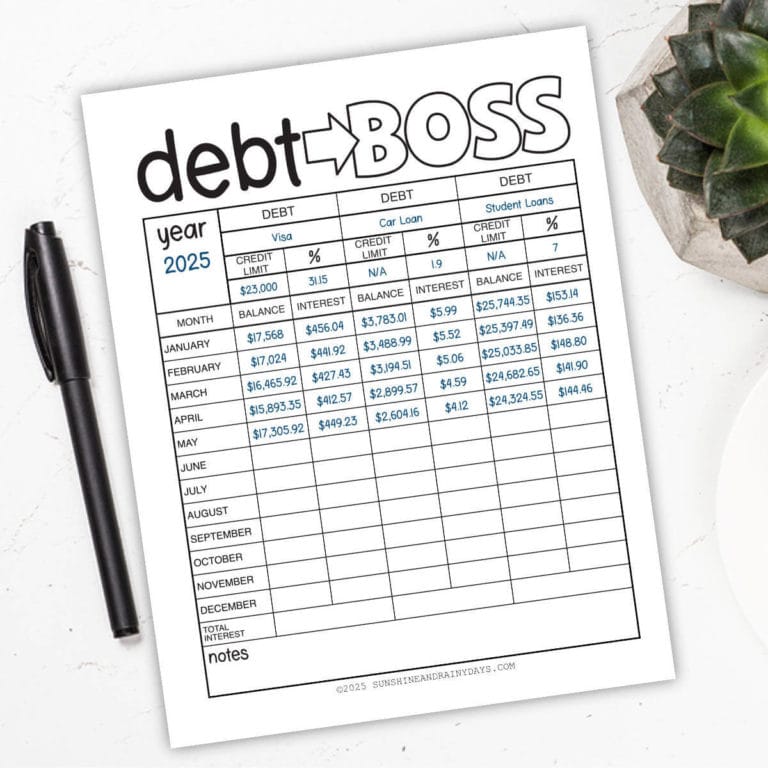Do I Need a Financial Advisor?
Our in-house investment guru is joining us with a little advice on investing and financial advisors! Take it away, Steve!
Do you have a financial advisor? This was a question a colleague asked me yesterday. Bill, an administrative intern in my building, just accepted his first job as an administrator. With the new job comes a new pay scale. On average, a building-level administrator will bring home a third more than they would as a teacher. It is a significant pay increase! Bill was wondering what to do with his impending pay increase.
To answer Bill’s question, I told him that I was my own financial advisor. Bill asked me if I trusted my judgment enough to be my own financial advisor. He was joking a bit, about my judgment, of course! It is a joke due to the fact that I have impeccable judgment on all matters;) The truth, however, is that Bill was a little intimidated by the idea of being his own financial advisor. What followed was a great discussion on why someone should be their own financial advisor and how easy it can be.
Why Be Your Own Financial Advisor?
The answer is simple! Because financial advisors cost money! Unless you are dealing with large sums of money, investing for the everyday investor is relatively easy. The money you would use to pay some fancy pants advisor, you can dump into your investments.
Financial Advice For Bill
Do a check-in with your 403b
Since we are educators, we are offered a 403b instead of a 401k. The simple difference between the two is that a 403b is offered in non-profit organizations. They are essentially the same as a 401k. I asked Bill if he knew how much he invested a month and what kind of funds it went into. He could not remember, so I suggested he do a little homework.
For our family account, I drop 10% each month into my 403b. Within my 403b account, I have an index fund that covers a large cap, mid cap, small cap, and bond index (I will explain index funds in a bit). My district matches my contribution into a traditional pension plan, so I feel pretty good about my work investments.
Look for ways to invest outside of your 403b
Next, I suggested that Bill look for ways to invest outside of his 403b. When asked if he or his wife had an IRA, he said that he did not. I suggested he look into a Roth IRA. I will not get into the specifics on why this is a good investment tool, but Roth IRAs are a great way to go. I also suggested that he do a little research into a fund company.
We use two companies for our outside investments. I have a Roth IRA through Fidelity and Bridget has a Roth IRA with a company called Royce. Royce specializes in small-cap funds.
Research funds or companies you may want to invest in
The last piece of advice was for Bill to do a little research into what type of funds or individual companies he may want to invest in. There are a million funds and even more individual stock options out there! I suggested he get a firm understanding of how funds work and the different types of funds there are as well as understanding how and why you invest in individual companies.
Our family sticks with mutual funds for their Roth IRAs. Many people enjoy investing in specific companies and individual stocks. I do not have the time to do the research needed to buy individual stocks, plus tax time can be a real pain in the six.
Sorting Through All The Noise of Fund Picking
The first thing I ask people when they speak to me about investing is; how much risk do you want to take? I ask this because it guides any advice I give. If someone is adverse to risk and wants to be a passive investor, I always suggest index funds. An index fund is a passive form of managed fund that follows a total market index. For example, you may hold an index fund that mirrors the S&P 500. The S&P 500 is an index that tracks the 500 largest companies in the US. So, an S&P index would replicate the holdings and movements of the companies in that group.
Index funds are managed funds, but because the manager is simply mirroring an index, there is not a lot of work involved. For the consumer of an index fund, it means the fee you pay to have someone manage the fund is low. Most fees on index funds are around .02%. Compare this fee to an equity fund that is actively managed and you will see the saving is substantial. Most actively managed funds have a fee between 1-3%. The money you save using an index fund stays in your account and compounds over time.
There are some very good actively managed funds out there! Both Bridget and I hold actively managed funds in our Roth IRAs. For example, Bridget has a smoking hot Micro Cap fund in her portfolio (through Royce) that has done very well for us. I have a medical specialty fund (through Fidelity) that is very solid as well. I say this to point out what I said earlier. There are a million fund options. I am a bit of an investment geek, so I like to play around a little more and am willing to expose myself to a little more risk in our IRAs. These funds, however, are not our primary investment vehicle!
Where to Start with Investing
Find an investment company you are comfortable with
I use Fidelity and Royce. This is not an advertisement for these companies at all, I am just saying that as a young investor many years ago, Fidelity and Royce made sense to me. Vanguard is another very good company. One of the reasons I chose Fidelity over Vanguard was that Vanguard required a $10,000 initial investment. Fidelity only required $5,000. To a young educator, this was a huge difference. Again, I have mentioned three companies. There are many good ones out there.
Determine what type of funds you want to use
Index, equity, specialty? There are several options to choose from. A newer option is called a Horizon Fund. With the Horizon Fund, you choose your retirement time frame and the investment company puts together a mix of stock and bond options for you that meets your time frame. There is a rule of thumb that as you approach retirement, a greater share of your holdings should be in bonds. This minimizes your risk of losing money. I could write an entire post on stock/bond ratios, so I won’t go into details here. The point is that the company you are working with will periodically re-balance your portfolio for you.
Jump In!
Once you have found the right company and figured out which types of funds you want to purchase, simply JUMP IN! Start investing and watch your investments grow. If possible, make your investments automatic. Set up an automatic withdrawal system so you do not forget to invest each month. If you are able to do this, you are doing what is called Dollar Cost Averaging. If you invest every month, you buy shares of your fund in both downturns and upturns in the market. Some try to “time the market” and buy shares only when the cost is low. Timing the market is risky and a huge pain.
Steer clear of loaded funds!!!
The one final piece of advice I would give for investing in mutual funds is to stay away from any funds that have a “load”. Depending on if the fund has a “Front End” load or “Back End” load, you will pay a percentage, say 5% on the transaction. This means that if you purchase $1,000 of a “Front End” fund, you will only invest $950. $50 will go to the fund company to compensate employees or advertisement. If you sell $10,000 of a “Back End” fund, you will only receive $9,500. $500 will go into the coffers of the investment company. Steer clear of loaded funds!!!
Parting Thoughts
By no means have I given an in-depth analysis of investing in mutual funds. I would like to avoid having you fall asleep at your monitor. You could hit your head on the desk and get a nasty bump! I hope, however, that you are able to take away some tips for investing. If there is interest, I can go into more detail about specific types of funds, re-balancing portfolios, expense ratios, etc. Anyway, let me know what you think! And, if you would like to send me a small advising fee, I would not say no:)!
Lol, Steve! You crack me up! I’m certainly happy you have this investing thing down and I’m thrilled to learn I have a smoking hot fund!
You must know that we aren’t financial experts and have no financial schooling other than the hard knocks of life. This post is the opinion and experience of Steve and we suggest you seek a professional’s opinion and not take our word for it.









I was horrified by the rates of a financial advisor. I went in for a free consultation with a guy who was recommended by an advisor who spoke at FinCon.
The guy never called me back after promising to do a workup, which may be good because I later heard what the average ones charge and… yikes.
We’re not ready to invest yet, other than IRAs. But once we get there, I’ll do more research. If it seems too daunting/Vanguard can’t completely hold my hand through it all, then I’ll consider an advisor.
There are some financial advisors who will give a flat or hourly rate for a consultation. Again, however, if you are not looking to invest large sums of money, you will not get a A list advisor. Many investment companies will push smaller investors to a new or inexperienced advisor. With a little work, you can have the same depth of knowledge as most beginning advisors.
As a DIYer, I am definitely of the opinion that most people have the ability to learn about personal finance and apply learned concepts and practices in a way to very productive. Ultimately, nobody is going to look after your money like you will!
Totally agree Savvy! No one will care for your money or health better than you will. The good thing is, that with a little reading and research, you can control both relatively easy.
Nice writeup Blake, I now buy into your judgement and its impeccableness,ha. I’ve never known much about loaded mutual funds as it’s not something I’ve ever invested in but I will keep the in mind if I ever dig deeper into those types of investments.
I seriously doubt I’d ever pay for a financial investor unless I had so much money that I didn’t know what to do with it. A day that will likely never come.
Agree Warren! If I had a large sum of money I would hire an advisor. Most advisors understand how to diversify large sums of money.
You oughta become a financial adviser. You really know your stuff! 🙂
Thanks Kay! I think I will stick with being my own financial advisor. I would feel really bad if I caused someone to loose money.
But I want one of those “smoking hot” funds like Bridget’s got! 🙂
Lol! I want more of those too;0)
Great tips! I want to learn more about investing, but for now have my 401k in a distant target date fund, so I don’t have to think about it!
Thanks Chela! Target funds are a great resource. No fuss, no muss!
Great advice Blake!
I too believe in index funds and must say that they have been good to us these past few years. My wife has a 401k and I actually have a 403b and we both have Roth IRAs. We actually save about 25% of our salary into these accounts.
We also invest above and beyond retirement and use Vanguard Funds and have recently hooked up with Wisebanyan, a robot adviser. I basically do all of my saving/investing on my own but the truth is in the near future I shall be consulting with a financial adviser for some guidance with our money. We will be acquiring advice and direction about preparing for the future, estate planning- how to set up our wills and trusts or whatever we need to do to make sure we protect our funds for us and our children. These are things we do not have the experience to do on our own and with all of the laws out there you really need to get them correct.
I have been following Ric Edelman for some time now and even been to some of his seminars and so far I am impressed with his view on personal finance. This is probably the company I will be meeting with when I am ready to make the next move.
Thanks for the comments Michael! I totally agree that sometimes it pays to seek help. I would have no clue on how to estate plan. I re-did my will about a year ago. I went to legal zoom to do it. It was easy and affordable.
Warren Buffett said that 80% of financial advisors and fund managers fail to beat the index (S&P 500). Not sure if this is true, but from what I hear from friends and family it probably is.
Warren is absolutely correct Tony! The vast majority of actively managed funds do not beat any index! Might as well do it yourself and save some money.
Thanks for the awesome tips, Blake! My husband and I are wanting to get more into investing (okay, he’s pretty knowledgeable about it…but I’m completely clueless). I would definitely like to make our money start working for us a bit more instead of the other way around.
Thanks for the comments Christina! I agree that our money should work for us. That is why I make sure I auto deduct money into my 403b each month. Pay yourself first, and you will thank yourself later.